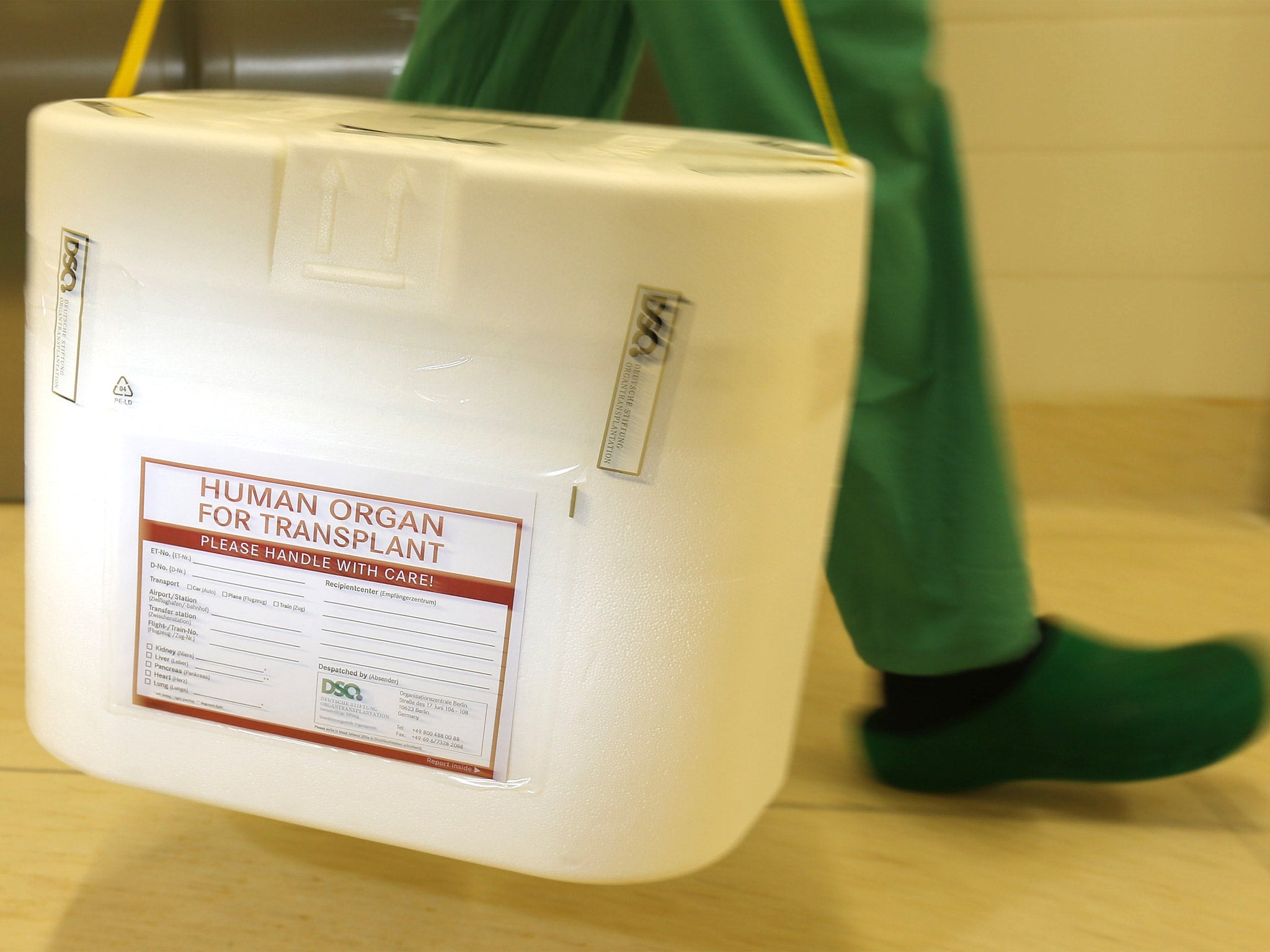Number of organ donors increases by 50% but relatives should not have the last word, says head of Government taskforce
125 families over-ruled the wishes of their relatives last year and refused to allow donation

The practice of organ donation should be changed to ensure that relatives cannot over-ride the wishes of individuals who have elected to become donors before their death, the head of a Government taskforce said.
The number of deceased donors reached 1,212 in 2012/13, and their organs transformed the lives of 3,100 recipients, according to NHS Blood and Transplant. "The progress made has been phenomenal," said Elizabeth Buggins, chair of the UK Organ Donation Taskforce.
But 125 families over-ruled the wishes of their relatives in 2011-12 and refused to allow the donation, despite their names appearing on the NHS Organ Donor register.
Ms Buggins said that it should be mandatory on doctors to refer a potential donor to the NHS Transplant service if their name appeared on the NHS Organ Donor register, the list of individuals who have volunteered to donate their organs after death.
While the law does not give relatives the power to prevent a donation, in practice doctors are reluctant to press the issue in the face of a grieving family who are opposed.
Ms Buggins was speaking as NHS Blood and Transplant announced that it had achieved a 50 per cent increase in deceased organ donors, matching the target set by the task force in 2008.
Ms Buggins said the need for organs continued to outstrip the supply. "People are still suffering and dying waiting for a transplant. Organ donation has yet to become a routine and accepted part of UK society."
The proposed change in the handling of relatives opposed to donation is among 40 recommendations aimed at boosting the supply of organs, including changes to the hospital tariff to "reward best practice" and the withholding of merit awards from consultants who fail to refer potential organ donors.
Ms Buggins said: "Health professionals are very reluctant to do anything that upsets people, particularly when there is a bereavement. They have always supported the family to make the decision that is right for them but they have not done enough to honour the wishes of the person who has died. "
She said that during focus groups held by the task force round the country, members of the public had expressed outrage at the idea that relatives could over-ride the wishes of individuals when they were not in a position to insist.
"Many were angry and horrified. It is a matter of shifting the balance. We don't want a cavalier attitude taken by professionals to the views of relatives. I am sure that won't happen but we need to do more to help families feel proud of what [donors] have chosen to do."
One donor can help as many as eight recipients with solid organs and more with donations of tissue. Ms Buggins said she had seen the comfort that donation could bring to relatives in their distress.
"I have met relatives of donors who have kept letters from the recipients in their jacket pocket for years. It made them feel better," she said.
On changes to the NHS tariff, and to consultant merit awards to incentivise referral of potential donors, she said the proposal had been made in response to wide variation in referral rates round the country.
"The idea was to encourage doctors to show that it is entirely do-able. But the nuances of that would require careful thought. There would need to be a lot of work to ensure any system did not undermine public confidence."
Katherine Murphy, chief executive of the Patient's Association, said relatives should not be permitted to block donations. "This is an issue that is very personal to the individual. It is not the right of the relative. Just as a family wouldn't attempt to amend someone's Will after their death, it seems like a violation of an individual's rights to try and do the same with organ donation.
"There will of course be exceptional cases, such as if the patient has severe mental health problems, or lacks a capacity to judge – but these cases are few and far between."
Join our commenting forum
Join thought-provoking conversations, follow other Independent readers and see their replies
Comments